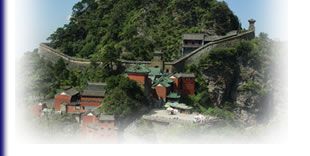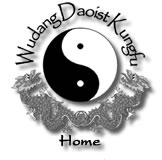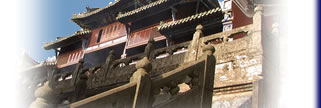 |
||||||||||||||||||||||
 |
 |
 |
||||||||||||||||||||
 |
||||||||||||||||||||||
 |
|||||||||
 |
|||||||||
Is there any difference between “Wu Shu” and “Kung Fu”?
Throughout the years of my teaching and communication with foreign students, I found that there are confusion and misunderstanding in their mind about “Wu Shu (武术)” and “Kung Fu (功夫)”. They thought that “Kung Fu” is something more superior and high class. It can be used in combat and for fighting crime. Those competent in “Kung Fu” would become heros for doing all the good things and eliminating crime. On the other hand, “Wu Shu” is quite the opposite in their mind. They thought “Wu Shu” is superficial and decorative. There is no real value in “Wu Shu”, not even as exercise for achieving good health. In fact, there is not much difference between “Wu Shu” and “Kung Fu”. The difference is only in terminology. Traditional “Wu Shu” dated back to thousands of years. It is part of the Chinese culture that founded on Taoism. Inevitably, the Taoism philosophy of “Yin/Yang”, “ 5 Elements”, “8 Trigrams”, “9 Squares” had all been embedded in “Wu Shu”. Before the Ching Dynasty, “knowledge” enabled stability of the country while military force safeguarded the country. “Wu Shu” which formed part of the military power secured the status and dignity of the country. It also indicated the country’s power which led to the fortune and existence of that country. Hence, one cannot ignore the value of “Wu Shu”. “Wu Shu” incorporated Chinese medical, meridians, Taoism philosophy of “Yin/Yang”, “ 5 Elements”, etc. There is no doubt in the value of “Wu Shu” for good health.
Let us look at the meaning of the two words “Wu Shu武术 (two Chinese characters)” separately. The word “武” can be further divided into two words: “止” and “戈”. In Chinese, “止” means “stop” and“戈”means “war” or “fight”. So “武” means “stop war/fight”. In ancient time, “stop war/fight” was largely done by “defeating the others”, “make the enemy lost ability to fight” and “conquer them”. Subsequently, it would be great if the enemy became part of us for our use. In order to achieve this, good fighting skills, experience in war and persuasive ability were needed. The word “术” implies a combination of competence, experience and skills. In our daily life, we should first be polite before using force. In war, the strategy would be to avoid the strength and attack the weakness of enemy.
We can interpret“武术”as cumulating sufficient experience via different forms of practices. “武” is exercising the body while“术”is mastering the skills through experience. This in turn means achieving coordination of“意”(mind) and “气”(qi) through intensive physical training of our body and internal training. Ultimately, we should be able to master the internal “qi” with our mind and arrive at the level of: “qi” and force simultaneously reach wherever our mind wants. This is “武术” (Wu Shu).
There are 2 meanings for the term “功夫” Kung Fu. One is “time” or “effort” spent; the other is “Wu Shu”. It can be said that “Kung Fu” is a modern term for “Wu Shu”. The term “Kung Fu” became popular in the western world because of Bruce Lee, the King of “Kung Fu”. Bruce Lee showed that “Kung Fu” is achieved with time and effort spent. Due to Bruce Lee, people all over the world became aware of “Kung Fu”. In his films, Bruce was always the hero who helped the weak groups with his “Kung Fu” (inevitably fighting and killing). Such act is always welcomed leading to value of “Kung Fu”.
After the reform of China and opening its gate to the world, “武术” (Wu Shu) has been widely promoted. There have been lots of large scale Wu Shu demonstrations, performance, and competitions worldwide. Most of them were in the form of a show. For putting “Wu Shu” into use, there are “free fighting”, kick boxing, sparring etc. These unfortunately had led to a misconception that “Wu Shu” is something modern and without value. Actually, there are some similarities between the term “Wu Shu” and “sport” which is a collective noun. Sport includes all various items of sport. There are also far more in “Wu Shu” than the superficial understanding of it.
Master Yuan Xiu Gang
Wudang Daoist Traditional Internal Kungfu Academy
27 December 2007
Wudang Taoist Traditional Kung Fu Academy |
|
| Website: http://www.wudanggongfu.com | E-Mail: yxg@taoistkungfu.com , wudangkungfu@163.com |
| Mobile: (0086)135-978-86695 | Address: Wudangshan, Shiyan City, Hubei Province, China 442714 |